COAL FINES: A GLOBAL CHALLENGE
Coal fines are an inevitable by-product wherever coal is mined, washed, transported or stored. Depending on the process used, 7-20 % of mined coal is lost as fines during the washing, screening and handling process before it leaves the mine. Up to 10 % of coal typically turns into fines during transport.
Fines are perfectly good coal, and typically of the same quality as the coal from which the fines originated. Yet, bulk handling and transport is very difficult because coal fines stick to most surfaces and cannot be exposed to rain or wind. Consequently, they are stored in big stockpiles (fines dumps) or slurry ponds, which represent severe environmental risks.

ACID MINE LEAKAGE
As rain filters through fines dumps or unlined slurry lagoons, water run-off turns acidic and often contains harmful substances leached out of the coal, which then enters the ground water or pollutes rivers and lakes.

AIR POLLUTION
Ultra-fine material, if not stored in wet form, is easily blown off by wind. This severely affects air quality and causes respiratory problems which give rise to long-term health problems in surrounding communities.

PHYSICAL HAZARDS
Fines dumps may self-ignite if not properly remediated, and may collapse through cavities formed by fires or water ingress and slurry dams may breach, all with potentially catastrophic consequences for communities and the environment.
BLACK SNOW — A LOCALISED SYMPTOM OF A GLOBAL PROBLEM
The media, regional administrations and environmental organizations regularly draw attention to the problem of “black snow”. Dust from coal fine dumps is blown off by wind and released again during snowfall. Vast areas in coal mining regions are covered by snow that appears to be black instead of white. While this phenomenon occurs only in winter, the health issues in summer remain the same — coal fines are released to the air if not processed properly, and are subsequently inhaled, causing severe respiratory problems in affected communities.
The pollution of drinking water due to leakage from slurry ponds or fines dumps may be even more harmful. Run-off from these sites is often toxic and poses severe long-term health risks for humans and wild-life. Regional governments in China and other countries have highlighted these dangers. Mining companies and other stakeholders along the coal supply chain are increasingly sensitive to the issue and keen to solve the problem.
FOUR REASONS TO PROCESS FINESINTO COAL FOR SALE

1. Coal fines are perfectly good coal, which is a salable
product worth processing

2. Unprocessed fines pose environmental risks: groundwater,
air quality, dangers of dump or slurry dam collapses

3. Fines cannot be transported, and storage takes up space,
which is expensive and can shorten the life of a mine

4. We prefer a partnership approach and do not require any
investment from mines for the building of plants
FOUR REASONS TO PROCESS FINESINTO COAL FOR SALE

1. Coal fines are perfectly good coal, which is a salable product worth processing

2. Unprocessed fines pose environmental risks: groundwater, air quality, dangers of dump or slurry dam collapses

3. Fines cannot be transported, and storage takes up space, which is expensive and can shorten the life of a mine

4. We prefer a partnership approach and do not require any investment from mines for the building of plants
COALTECH IS THE ONLY COMPANY PROCESSING COAL WASTE INTO VALUABLE PELLETS AT INDUSTRIAL SCALE

COALTECH IS COMMITTED TO THE PRINCIPLES OF BETTERCOAL
The initiative, founded in 2012 by European coal mining companies and electricity producers, aims to improve the standards along the entire global coal supply-chain. On-site audits of stakeholder companies are regularly conducted by Bettercoal specialists, evaluating the environmental and social impact of coal production and processing. How the miners deal with the potentially toxic coal fines is a major focus during the audits and for business, government and societal stakeholders. CoalTech provides solutions to utilize the waste and cooperates with the Bettercoal initiative to work on comprehensive industrial standards applicable to the entire coal supply chain.


